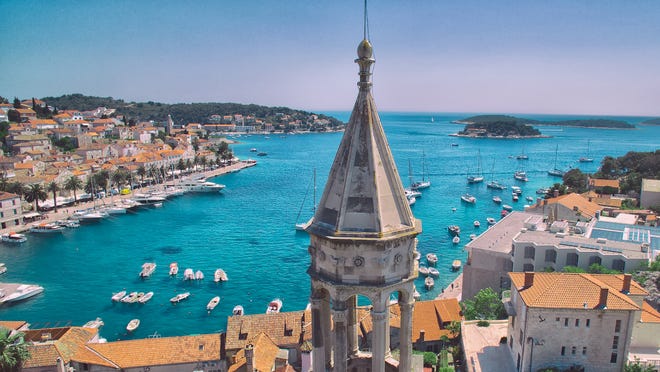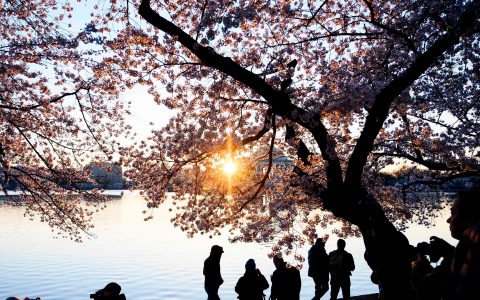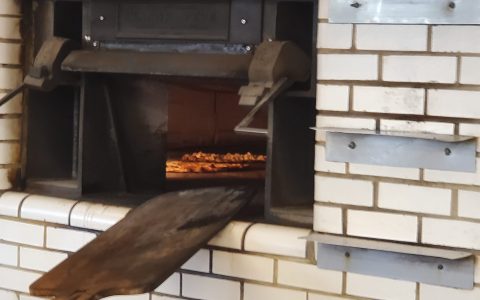
Until just a few years ago, Croatia was an unsung hero in the travel sector. Today, it’s among the fastest-growing vacation spots.
That will happen when the biggest TV show on the planet films in your coastal jewel of a country. HBO “Game of Thrones,” which just won its record-tying fourth drama-series Emmy for its eighth and final season, began filming there in Season 2. After initially using Malta as the setting for King’s Landing, the walled seaside capital of Westeros “Thrones” moved those scenes to Dubrovnik, Split and other Croatian locales. Scenes involving the Riverlands and the foreign cities of Meereen and Braavos were also shot in Croatia.
According to Expedia flight data, the country’s biggest tourist meccas – Dubrovnik, Split, and Zagreb – have all seen triple-digit increases since 2015. Bolstering its credibility with the U.S. domestic audience, the United States Tour Operators Association ranked Croatia as a top emerging locale for 2019. Searches for the Balkan nation have also surged on TripAdvisor.
This year, travel agents recognized Croatia the second-best European destination and tourist board at the Travvy Awards and USA TODAY named it one of the hottest destinations.
So, what exactly is driving Croatia to become one of Europe’s trendiest travel meccas – other than its starring role on “Thrones?”
Natural beauty, history, and culture abound

Croatia has 10 UNESCO World Heritage Sites and another 15 treasures on the tentative list. It boasts miles of pristine shoreline and more than a thousand islands ripe for exploration. Further attracting tourists are stunning beaches – most notably postcard-worthy Zlatni Rat – dramatic cliffs, alpine forests, turquoise lagoons, and glimmering lakes. Visitors can chase waterfalls in Krka National Park, book excursions to the breathtaking Blue Cave, and take guided boat tours to discover the remote splendor of the Kornati archipelago.
In between beach days and sunset sails, travelers have the chance to visit the medieval towns of Motovun and Vrbnik, admire centuries-old churches, and marvel at ancient ruins. Diocletian’s Palace in Split (where several Meereenese scenes from “Thrones” were shot) is one of the most frequented historical sights in the country.
While impressive architecture and heritage-rich attractions earned Dubrovnik the title of “best cultural capital” in the most recent AFAR Travelers’ Choice Awards. Not to be neglected, the harbor city of Pula is rich in Roman ruins thanks to its 1st-century arena, the Temple of Augustus and Gate of Hercules.

You’ll never be hungry (or thirsty)
The best, err, tastiest, way to get acclimated with a new destination? Sample the local cuisine. From Michelin-starred restaurants to traditional, family-run konobas, there’s no shortage of delicious food in Croatia.
Of course, every region has its own culinary traditions and staple recipes. Italian influences like truffle pasta dishes and wood-fired pizzas are most evident in the northwestern region of Istria. Further south in Dalmatia, you’ll notice simply grilled fish, mussels buzara and peka (meat and vegetables slow-cooked under a dome) on menus. Kulen, a prestigious cured-pork sausage from Slavonia, is not to be missed.
Both eating and drinking are a big part of the culture. You’re never far from a cold bottle of Karlovačko, the leading domestic beer brand. Croatia also offers a range of locally made spirits, the most ubiquitous being Rakija, a high-alcohol fruit brandy.
When in Zadar, it’s customary to sip Maraschino, an aromatic liqueur distilled from the fruit and pits of sour marasca cherries. Vino lovers won’t be disappointed either, as Croatia produces wonderful wines. Malvasia is the typical white from Istria that’s minerally yet strong with a nice roundness. For something a bit lighter, try Žlahtina, a varietal grown exclusively on the island of Krk.
It’s a good value
Price can either be a big motivator or determinant for vacationers. In the case of Croatia, it’s overwhelmingly the former. In comparison to the rest of Europe (save for perhaps Portugal), it’s still a bargain thanks to reasonable prices and a favorable dollar-to-kuna exchange rate. That’s good news for folks dreaming of a Mediterranean getaway, who might not have the funds to splurge on an expensive trip to Greece.
Lots of new development
It’s no secret that “Thrones” put Dubrovnik on the map in a major way. But its impact has spread far beyond the city’s walls.
Life after ‘Game of Thrones’: You can still experience the magic through travel

Hot on the heels of such a surge, a wave of new hotels catering to discerning jetsetters. The utterly exquisite Palace Elisabeth, which debuted in September, marks the first five-star property in Hvar. Housed in a historic landmark building overlooking the marina, the 45-room sanctuary provides an abundance of posh amenities – including an indoor swimming pool and luxurious spa.
It’s not just accommodation options that are getting a boost. Pedestrian and bicycle paths will soon open on the island of Pag north of Zadar. Tourism news site HRTurizam confirmed the allocation of 8.5 million kuna for coastal development in Omiš, Trogir, Kaštela and Tučepi. And that’s just the beginning.
The impact of overtourism
Rising popularity means an uptick in visitors. That’s currently happening in Croatia. Scarcely known towns now buzz with tourists. And it’s no secret that “Thrones” all but ruined your chances of enjoying a crowd-free trip to Dubrovnik.
The influx of tourists is particularly bad in summer. And while that’s a common enough issue for many popular destinations, it’s next-level problematic in Croatia. Vacationers now descend in droves on the otherwise quiet villages of Bol and Trogir in droves. A few years ago, you could frolik in the crystalline waters of Sakarun Beach in the company of just a handful of other sand-seekers. But the summer of 2019 saw the Jadrolinija car ferry from mainland Zadar to Brbinj on Dugi Otok ran three times a day (four on weekends), carrying hundreds of passengers as well as vehicles.

Plitvice Lake National Park can’t even handle the sheer volume of entrants. The UNESCO-listed tourism magnet saw a whopping 1.7 million admissions in 2017. In an attempt to alleviate problems with overcrowding, the Croatian government has taken action to limit the number of hourly visitors and recently introduced a new e-ticketing system that allows people to book online at least two days in advance. While a start, it’s hardly a permanent fix. Thankfully, measures are underway to establish more long-term solutions.
A few spots remain unspoiled

It’s not all bad news. Even in summer, the tiny island of Zlarin, a 30-minute ferry from Sibenik, is a peaceful spot for a holiday that still retains a blissfully secluded sensibility with its unhurried pace, car-free roads, and near-empty beaches.
‘It’s like living in the middle of Disneyland’: Croatia’s ‘Game of Thrones’ town threatened by mass tourism
Emmys 2019: Did ‘Game of Thrones’ really deserve to win the top prize?





